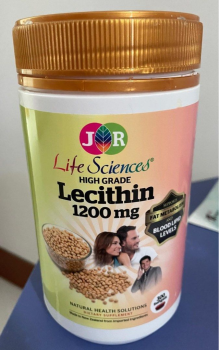-
Posts
484 -
Joined
-
Last visited
-
Days Won
15
Content Type
Profiles
Forums
Downloads
Gallery
Everything posted by kiynox
-
[ @leuxua ] --- That's so many. Are you just made the same script on 6 different language? --- *Bump: @NoFear, @Collen
-
[ @Mygmus ] --- You alone. The reasons: - Crushing ordinary players makes me happy. - Their badwords is a lullaby for me - Their rages is my entertainment - Their emotions makes me want to do it more - Their despair is my destiny --- Just kidding, I couldn't tell If I'm joking or not.
-
[ @tthgj ] --- You don't need loop, using "gg.editAll" will change all the value of the address to your desires. # Search for Dword: 10 gg.searchNumber('10', gg.TYPE_DWORD) # Edit all value to 99 gg.getResults(gg.getResultsCount()) gg.editAll('99', gg.TYPE_DWORD) --- I recommend to read our documentation: here
-
[ @tthgj ] --- I'm honestly confused on what you're trying to say. Please add punctuation and explain it slowly. So this is what I understand: Find value -> get the address from result -> address search, you mean pointer? -> and then save it: gg.searchNumber('10', gg.TYPE_DWORD) gg.loadResults( gg.getResults( gg.getResultsCount() ) ) gg.searchPointer() *Use DWORD: for 32-bit & QWORD: for 64-bit ---
-
[ @JebaczKoz ] --- The game probably uses newer version of Unity Engine which can have different format, structure and headers. If you have some (.unity3d) files from the game, you can open it on Unity to see it's engine version (of the file). ---
-
[ @ninjavour ] --- In theory, yes, you can. You can setup some proxy capable in intercepting "in-game requests", in meaning that it is understand the datas the game tried to send & receive. Setting this is hard and require in understanding game structs. --- You can go this route. APK+OBB is editable using Game Guardian, you can just "DISABLE" in-game server check. It is the common way others create "offline games" but you see: - If the games only require "a server" for login purposes, you can still return a fake credential, which altered through in-game files. (Ex: Red Dead Redemption 2, Far Cry, GTA V, etc) - If the games only require "a server" for license check, you can just skip by disabling it. (Ex: Minecraft) You need to understand what this "server" is actually for and the game must have some kind of "Offline Game Modes" (Ex: Classic, Story, Solo Mode, etc) because if it's heavily depends on Multiplayer server, you can't do anything other than stuck at the lobby/menu screen. ---
-
--- [ @XEKEX ] This is weird. How can you handle the in-game packets then? ---
-
[ @ninjavour ] --- Yes and No. You can make the game "offline" if it's also have offline gamemodes (story, classic, etc). ---
-
[ @SmilingSword ] --- Just ordinary UC members. Well, it's interesting to see you here. ---
-
[ @GTRX ] --- Nice work! thank you for sharing your solution with us! It is surely helpful. ---
-
[ @SmilingSword ] --- Are you that guy from UC? UnknownCheats ---
-
[ @Goofballfr ] --- Perhaps the termux you're downloading isn't compatible with your phone architecture. Make sure to download the "Universal" version: Termux ---
- 15 replies
-
- android 11
- GG 101.1
-
(and 1 more)
Tagged with:
-
[ @Goofballfr ] --- Screenshot the "Permission" section and not the settings menu. Try this command on Termux: su setenforce 0 Then go inside Game Guardian -> "Fix It" button -> "Switch to work with SELinux and restart the app" ---
- 15 replies
-
0
-
- android 11
- GG 101.1
-
(and 1 more)
Tagged with:
-
[ @Luffy_Op ] --- I have fixed your entire script with proper naming, indentation, syntax. I will list some of the changes: cs = 'Oof' while(true)do if gg.isVisible(true) then XGCK=2 gg.setVisible(false) end gg.clearResults() if XGCK==2 then Main() end end You have 2 of these, doesn't make sense and will likely to interfere. The "cs" variable is useless since it is not being used anywhere --- print('Correct') print('WRONG PASSWORD') print(Error) Using print() on script doesn't shows you the message, it will be showed after you exit the script. I have replace it with gg.alert() and gg.toast() --- gg.toast ('script is loading.') gg.sleep (1000) gg.toast ('script is loading..') gg.sleep (1000) gg.toast ('script is loading...') gg.sleep (1000) gg.toast ('script is loading....') gg.sleep (1000) gg.sleep (1200) gg.toast("80%") gg.sleep (1200) gg.toast("95%") gg.sleep (1200) gg.toast("100%") gg.sleep (1200) gg.toast("Done✔") gg.setVisible(true) Fake loading screen is removed, you can add this back if you think this is "aesthetic" --- menu = if not menu then return Safety check is added, it will bring users back to main menu if user cancels the operation --- function b1() gg.setSpeed(0.0001) gg.toast ("Speed Hack Activated") end These kind of function are now merged for clarity if menu == 1 then gg.setSpeed(0.0001) elseif menu == 2 then gg.setSpeed(1.0) --- Variables name are changed to make it readable: X -> sflags (social flags) XGCK -> flags a1() -> suns() a2() -> coins() a3() -> speeds() a4() -> socials() --- gg.processPause() gg.searchNumber(menu[1], gg.TYPE_DWORD) gg.getResults(gg.getResultsCount()) gg.processResume() You added gg.processResume() and so I add gg.processPause(). The game will pause when values are being searched. --- if menu3 == 1 then b1() end if menu3 == 2 then b2() end Double if's are now replaced with elseif if choices == 1 then suns() elseif choices == 2 then coins() --- "Fixes" from @MonkeySAN is also been added. I hope you can improve your overall script in the future. Luffy_Op PVZ.lua
-
[ @Luffy_Op ] --- We are not wizards, here's what we need to help you: - Explain the exact problem concisely. So far, you're only doing request instead of asking for help. ("i need like that") - Attach your script here, so we can help you fixing it. - Use a better choice of words with proper punctuation. This will help us to better understand your problem. --- Judging of your video, is this what you are looking for? function menus() gg.alert('Click on GG button to continue') gg.setVisible(false) knxs = 1 end function continous() gg.alert('You reach the second code execution') gg.setVisible(false) knxs = 0 end knxs = 0 while true do if gg.isVisible(false) then if knxs == 1 then continous() else menus() end end end ---
-
[ @Luffy_Op ] --- Do you mean this? : function menus() inputs = gg.multiChoice({"Show Fields", "Show Methods", "EXIT"}, nil, "Knx") if inputs == nil then knxs = 0 else if inputs[1] then show_fields() elseif inputs[2] then show_methods() else os.exit() end end end function show_fields() print("menu_1") end function show_methods() print("menu_2") end while true do if gg.isVisible(true) then knxs = 1 gg.setVisible(false) end gg.clearResults() if knxs == 1 then menus() end end ---
-
[ @Count_Nosferatu ] --- It is a web-browser games, you can't disassemble any binary here except just do some network engineering or some analysis on how it works. --- [ @Teito ] I have take a glance at the game, it looks like the score are saved on the client first before submitted to the server. However, it also have some synchronization to probably validate the score through webvisor (yandex) or whatever there is. I never tried to change anything on it since my browser have multiprocess, couldn't bother much to find the right PID that the game sits on. Lastly, the game requires you to login first before you can save your progress which seems that you need to deal with the game API, I've seen the game talks alot to "cdn.y8.com". It would be hardcore to submit edited score since you probably need to deal with account authorization. Looks hard it is. ---
-
[ @AMIYA ] --- Google keeps autocorrect the searches and that's what I found on it. --- Right, you should have mention it "LTC" to be searchable. ---
-
[ @Bloxxy ] --- Quic is build on top of UDP but it doesn't make it a Lossless protocol. Even though the UDP itself is unreliable and lossless but Quic is different, it is reliable, accurate and sure is fast. It is behaving like TCP but on top of UDP. There's a reason Google implemented this. --- Game Guardian is not a packet oriented application, it's only focusing on what memory debugging should have. I believe gg.makeRequest() is only added just for the shake of Lua extension support. ---
-
[ @brubbribo ] --- For alternative, you can also use: GGIl2Cpp which you can see the documentation: here ---
-
[ @Bloxxy ] --- Welp, I can only suggest you some workaround using HTTP. I don't even know How Game Guardian lua's handle HTTP/2 or HTTP/3. You might need to use HTTP/2 Multiplexing or take care of HTTP/3 which use UDP (Quic) which make it more reasonably faster if you care about connection speed. Connection speed involve many factor and not just at protocol perspective (using CDN for example). --- Second suggestion is to get your-self multipart body, this will avoids your sended data to be encoded first (\0x88\xblah), less hassle into connection speed. --- Third, switching protocol to Websocket from HTTP/1. I don't know how Game Guardian handles this but you can switch HTTP/1 to Websocket using this Headers: --- That's pretty much wraps any ideas I would have. It is very limited, you might find yourself using another way instead of doing it inside Game Guardian.
-
[ @Bloxxy ] --- Yes, I mean it as partially. --- You can re-use existing socket by using HTTP Pipelining: See GET / HTTP/1.1\r\n Host: blah.com\r\n \r\n GET / HTTP/1.1\r\n Host: blah.com\r\n \r\n --- 200 bytes for headers, etc; is not a lot and still reasonable. ---
-
[ @Bloxxy ] --- Lua that's bundled inside Game Guardian cannot use external module and even some Lua internal modules. But, Game Guardian do support HTTP bequest, so your server needs to also support HTTP/HTTPS protocol, otherwise there's nothing you can do about it. Yes, even plain TCP aren't do-able. --- See request documentation: gg.makeRequest
-
[ @huanggua ] --- That's right. If it's doesn't fit, just replace the next instruction. ---





